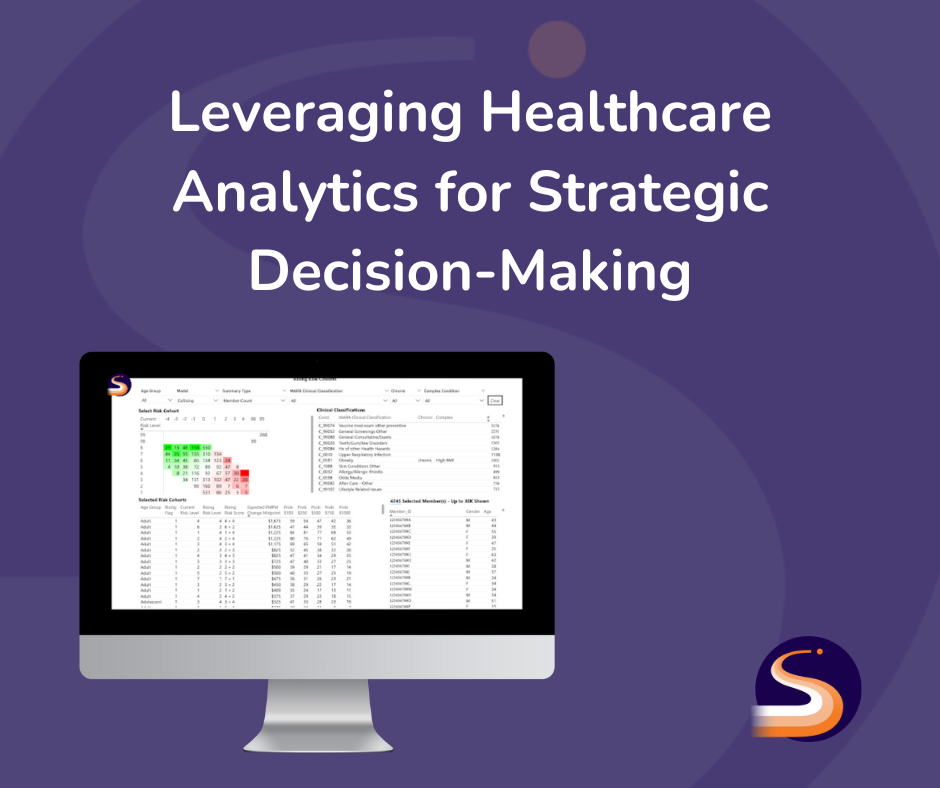
Healthcare analytics transforms healthcare systems’ operations, providing valuable insights that drive strategic decision-making. In the fast-paced healthcare environment, leveraging analytics is essential to improving patient care, optimizing resources, and staying competitive.
The Role of Healthcare Analytics
Analysis in a clinical setting involves collecting, analyzing, and interpreting data to inform decision-making – primarily “on your feet.” By leveraging advanced analytics, healthcare systems can identify trends, predict outcomes, and make data-driven decisions that enhance patient care and operational efficiency.
Five Ways Healthcare Professionals Can Leverage Analytics for Strategic Decision-Making
- Improving Patient Care Analytics can identify patterns in patient data, enabling healthcare providers to predict and prevent health issues. For example, predictive analytics can forecast patient readmissions, allowing for early intervention and reducing the risk of complications. This proactive approach leads to better patient outcomes and satisfaction.
- Optimizing Resource Allocation Healthcare systems face the challenge of managing limited resources efficiently. Analytics can help optimize resource allocation by predicting patient demand, managing staffing levels, and reducing waste. This ensures that resources are utilized effectively, leading to cost savings and improved operational efficiency.
- Enhancing Clinical Decision-Making By analyzing clinical data, healthcare professionals can identify best practices and standardize treatments. Analytics can highlight the most effective interventions, helping providers make evidence-based decisions that improve patient outcomes.
- Reducing Operational Costs, Analytics can identify inefficiencies in healthcare operations, such as unnecessary tests or procedures. By streamlining processes and eliminating waste, healthcare systems can reduce operational costs and allocate funds to areas that need it most.
- Personalizing Patient Care Through the analysis of patient data, healthcare providers can develop personalized treatment plans. This customization enhances patient engagement and adherence to treatment, ultimately leading to better health outcomes and patient satisfaction.
Challenges and Solutions Implementing healthcare analytics comes with challenges, such as data quality, integration, and privacy concerns. These can be addressed through robust data governance policies, seamless integration solutions, and strict adherence to data privacy regulations.
The Future of Healthcare Analytics The potential of healthcare analytics is immense. As technology continues to evolve, analytics will become more sophisticated, offering deeper insights and more accurate predictions. C-suite decision-makers must stay informed about these advancements and invest in analytics solutions to remain competitive.

